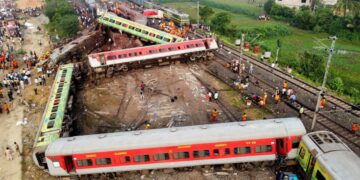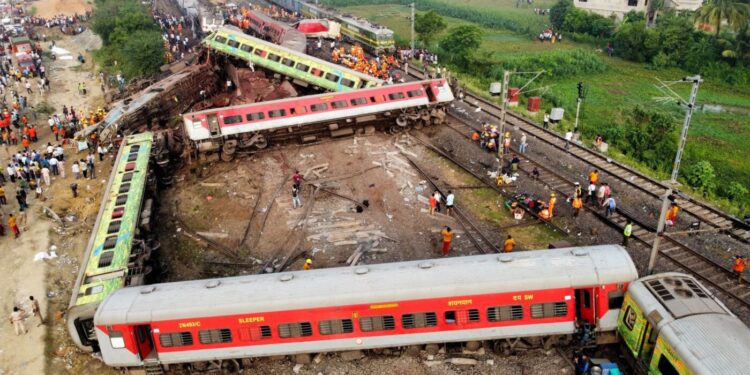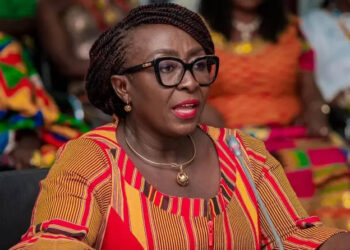By John Ikani
The death toll in India’s most severe rail crash in over 20 years has climbed to 288, according to officials.
The tragic collision took place on Friday at approximately 7 p.m. (1330 GMT).
It involved the Howrah Superfast Express, travelling from Bengaluru to Howrah in West Bengal, and the Coromandel Express, heading from Kolkata to Chennai.
In addition to the collision, one of the trains struck a stationary freight train in Odisha state’s Balasore district, causing extensive damage to the rail cars and resulting in injuries to 803 individuals.
Eyewitnesses reported that several lifeless bodies remain trapped within the wreckage, as the rescue operation continues. Unfortunately, the death toll is expected to rise further.
K. S. Anand, the chief public relations officer of the South Eastern Railway, stated that a preliminary report suggests that signal failure was the cause of the accident.
“The Coromandel Express was directed to the loop line instead of the main line, leading to a collision with an already parked goods train. Consequently, the coaches fell off the tracks, causing the derailment of the Howrah Superfast Express as well,” explained Anand.
Prime Minister Narendra Modi arrived at the scene to assess the situation, offering support to rescue workers and inspecting the wreckage. He also met with survivors in local hospitals.
Expressing his condolences, Modi said, “(I) visited the site of the tragedy in Odisha to evaluate the situation. No words can truly express my profound sorrow. We are fully committed to providing all possible assistance to those affected.”
The families of the deceased will receive compensation of 1 million rupees ($12,000), while those seriously injured will be granted 200,000 rupees. Minor injuries will be compensated with 50,000 rupees, stated Railway Minister Ashwini Vaishnaw. Various state governments have also announced additional compensation measures.
Vaishnaw, after inspecting the accident site, acknowledged the severity of the incident, stating, “It is a major and tragic accident.”
Indian Railways, responsible for transporting over 13 million people daily, has faced safety concerns due to aging infrastructure. While the government has introduced high-speed trains as part of its modernization efforts, critics argue that insufficient attention has been given to safety measures and infrastructure upgrades.
Experts highlight that Friday’s train accident is a setback to Modi’s ambitious railway reform plans.
India’s most devastating railway disaster occurred in 1981 when a train plunged into a river in Bihar state, resulting in an estimated 800 fatalities.
Several world leaders, including Nigeria’s President Bola Tinubu, Canadian Prime Minister Justin Trudeau, British Prime Minister Rishi Sunak, and French President Emmanuel Macron, have expressed their condolences for the tragic accident.



































